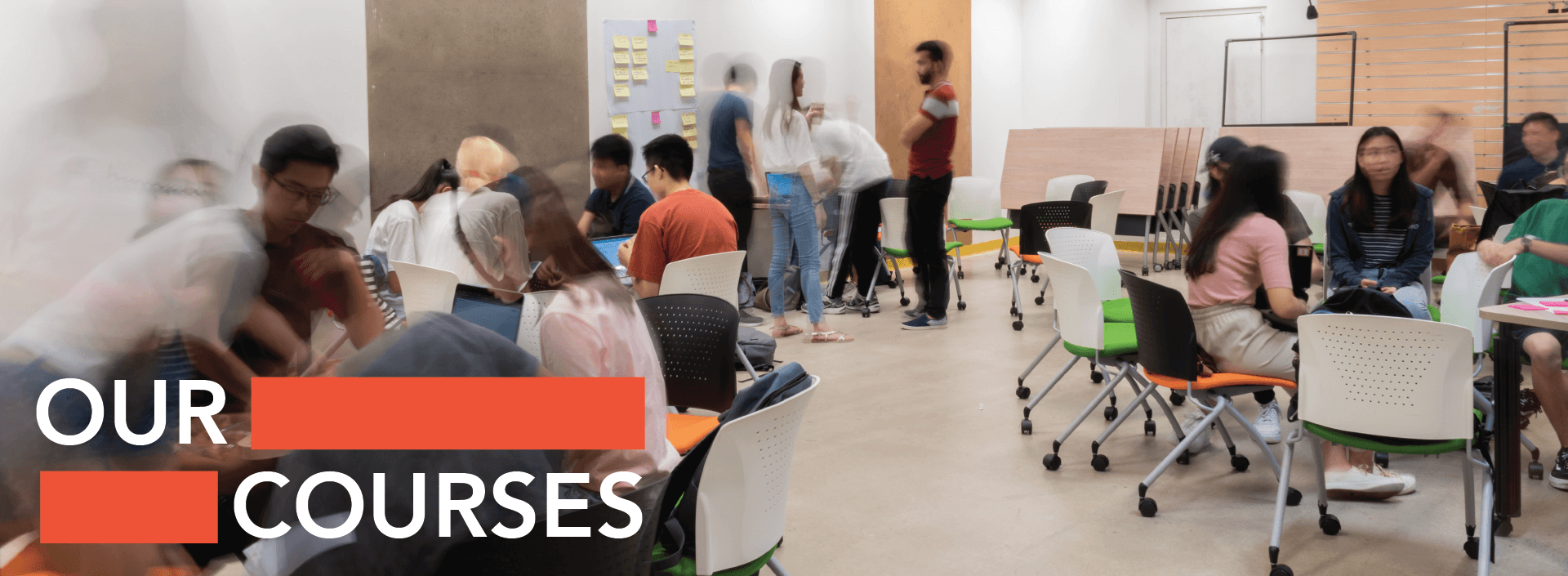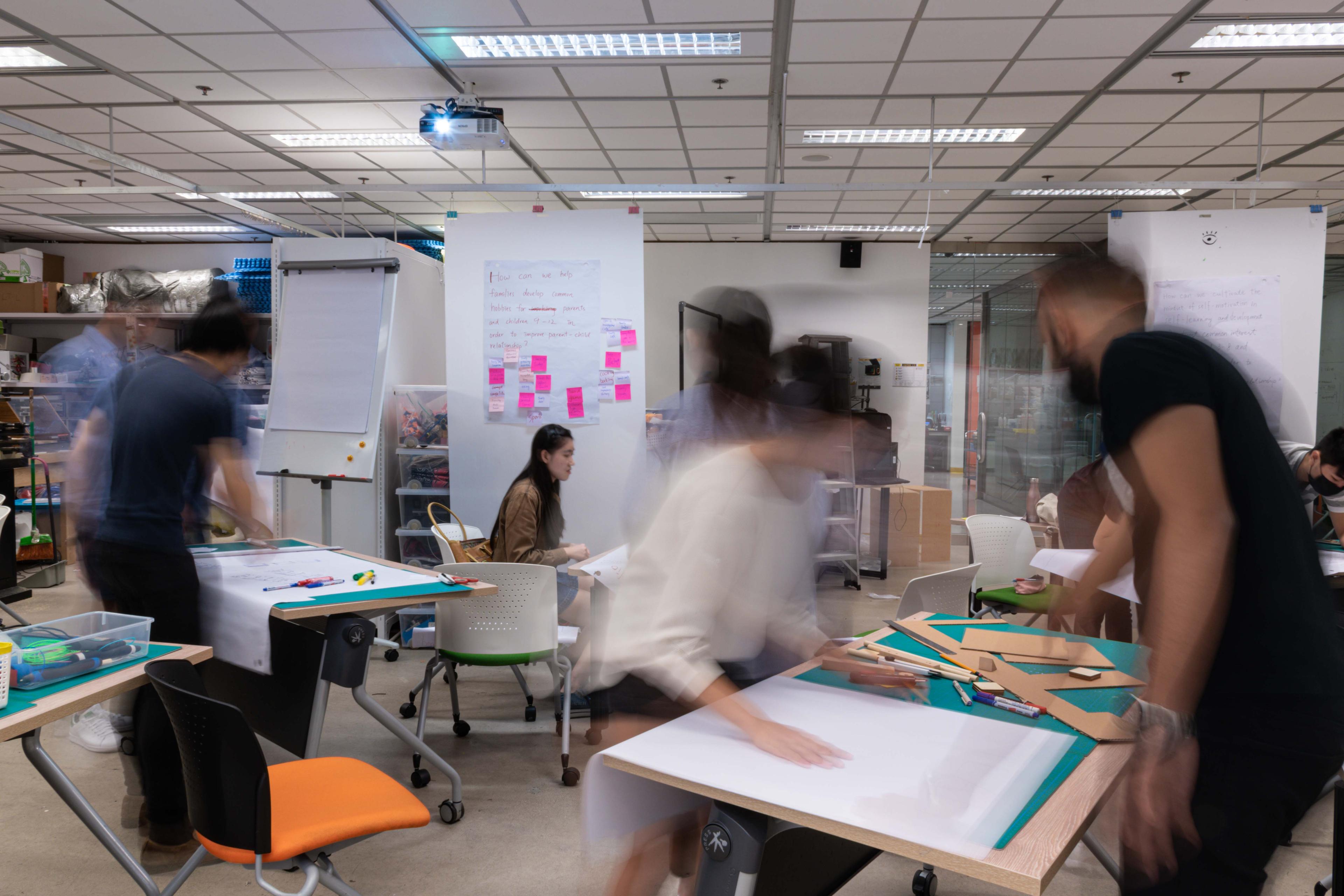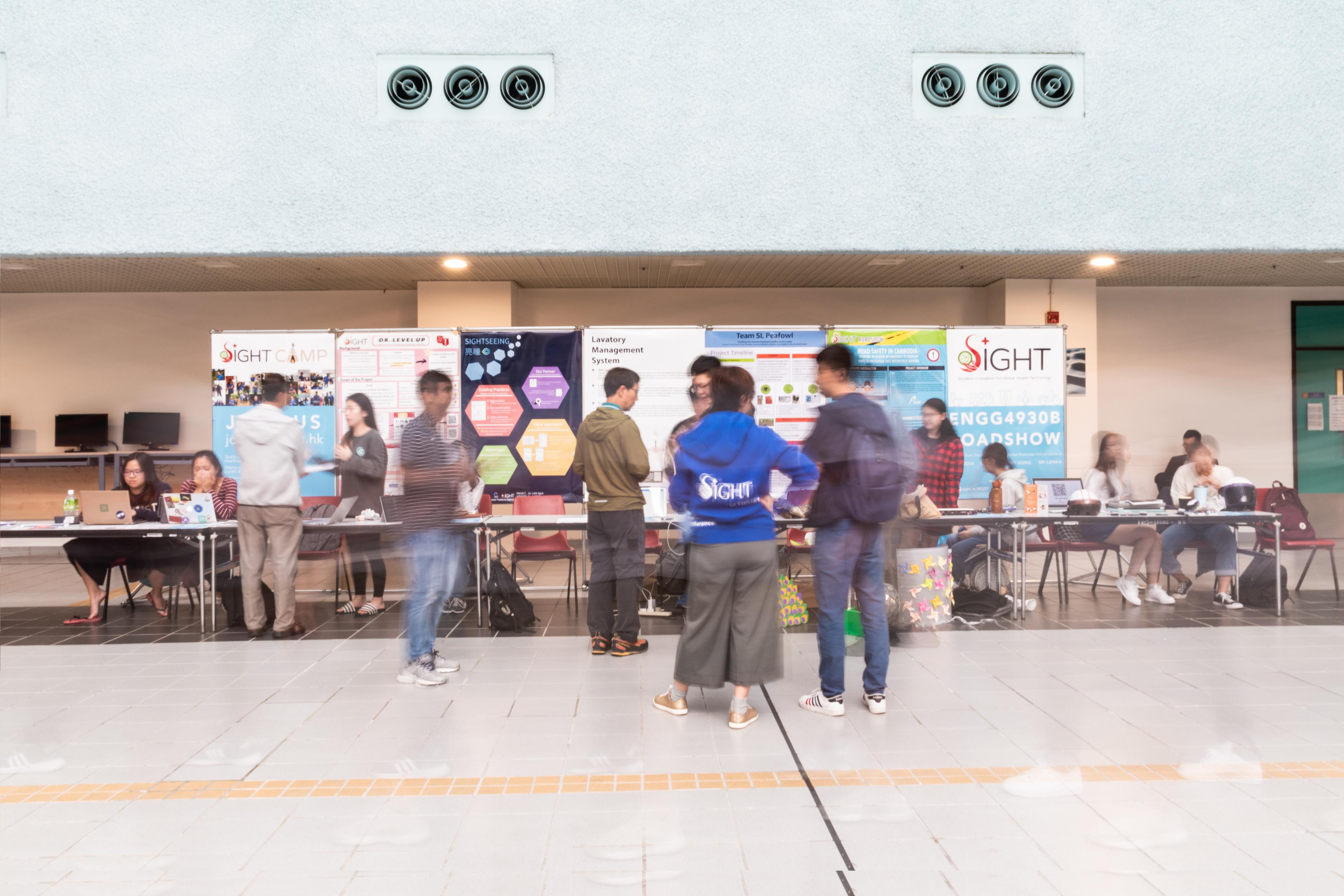
ENGG1300

Design Thinking for Health Innovation
A project‐based, experiential course that exposes students to the design thinking process for health innovation to address the real‐world unmet needs in the society. The goal of this course is to develop students’ communication, interpersonal, teamwork, analytical, design and project management skills through a multi‐disciplinary, team‐based design experience. The design thinking process modules: empathize, define, ideate, prototype and test, will be introduced and the students will learn experientially by applying these process modules to solve the health unmet needs they observe in real life. The students are required to report their progress throughout the semester. At the end of the course, they will showcase their prototype in a roadshow and submit their project report and reflection on their design journey. It is a common core course for students from different schools who have no background in design thinking or are looking for practical experience in design thinking.
ENGG4930

Design for Global Health
Intensive team projects that focus on designing technology innovations for global health problems. Student teams are expected to build prototypes, implement solutions, and derive improvements based on feedback from NGOs and end-users in partner communities. Project course is given 3 credits each for fall and spring semester, and students are given the option to repeat for credits.
Selected students from ENGG4930 will take part in an overseas study trip, in which they visit the low-resource communities served by partner NGOs. The trip will be packed with on-site observations, data collection, interviews with stakeholders, and intensive brainstorming sessions. The students will also serve the underprivileged by conducting health workshops and implementing the products already developed in the prior semester. At the conclusion of the trip, the teams will present to partner NGO and receive feedbacks, and summarize their experience in learning portfolios.
This year, our student teams brought their projects to life in Hong Kong, Shantou and Siem Reap.
